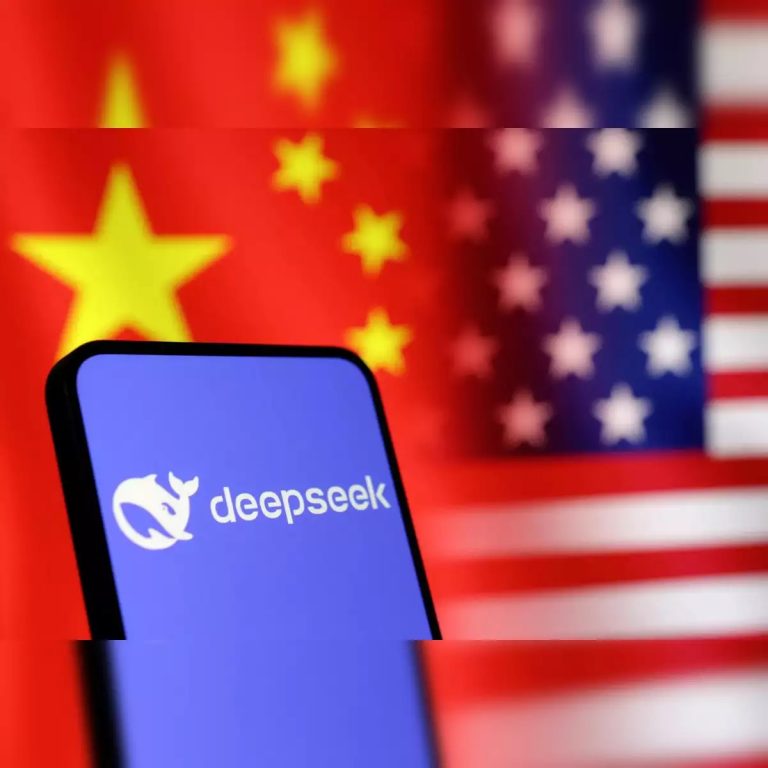
Lawmakers in the United States of America have moved to ban China’s AI open-source model Deepseek, from government devices, citing security risks.
A CNBC report revealed that a bipartisan congressional bill is being introduced to ban China’s DeepSeek AI software from government devices, on national security grounds, saying the company’s technology presents an espionage risk.
“The technology race with the Chinese Communist Party (CCP) is not one the United States can afford to lose. The national security threat that DeepSeek, a CCP-affiliated company poses to the United States is alarming”, says U.S. Reps. Darin LaHood.
Register for Tekedia Mini-MBA edition 19 (Feb 9 – May 2, 2026).
Register for Tekedia AI in Business Masterclass.
Join Tekedia Capital Syndicate and co-invest in great global startups.
Register for Tekedia AI Lab.
He further added that DeepSeek’s generative AI app can acquire the data of U.S. users and store the information for unidentified use by Chinese authorities.
The proposed ban of Deepseek by U.S lawmakers on government devices is coming after Texas, a constituent state of the United States of America, announced the ban of the Chinese Open-source AI model app, citing national security and data privacy risks.
Speaking on the ban of Deepseek, Texas Governor Greg Abbott, noted that the decision was necessitated to protect the state’s digital infrastructure from foreign influence. “Texas is committed to safeguarding its critical infrastructure from foreign adversaries seeking to exploit our data. We will not allow Chinese Al and social media applications to compromise our security”, he said.
It is also worth noting that the U.S. Navy, Congress, the Pentagon, the Finance Ministry, and NASA have also banned the use of the Deepseek app, all similarly citing privacy and security concerns. Recall that the U.S. Navy in January this year, issued a warning to its members, against the use of the app in any capacity, due to “potential security and ethical concerns associated with the model’s origin and usage.”
Chinese artificial intelligence startup DeepSeek rolled out earlier this year, taking over rival OpenAI’s coveted spot as the most-downloaded free app in the U.S. on Apple‘s App Store, dethroning ChatGPT for DeepSeek’s AI Assistant. The rollout of the app impacted global tech stocks, which saw many sold off and was on pace to wipe out billions in market cap. Reports showed that the Deepseek V3 model outperformed Meta’s Llama 3.1, OpenAI’s GPT-4o, and Alibaba’s Qwen 2.5 in third-party benchmarks while being significantly cheaper.
The app has continued to gather momentum with its usage as similar data revealed that DeepSeek.com hit a record 49 million visits last Tuesday, marking a 614% jump from the previous week. While this figure doesn’t include app-based traffic, it highlights DeepSeek’s rapid growth. A month ago, the site averaged 300,000 daily visits, but by January 27, that number exploded to 33.4 million. DeepSeek is now outpacing Google’s Gemini and Character.AI, which see about 10 million and 6 million daily visits, respectively. However, it still trails OpenAI’s ChatGPT, which pulls in 130 to 140 million visits per day.
However, despite the popularity of the app, it has alarmed national security experts given the Chinese government’s requirements for domestic firms to share data with the PRC. Several countries, such as Italy and Australia, have already banned government use of the Chinese AI app due to security concerns. The privacy watchdogs of countries like Ireland, France, Belgium, and the Netherlands have also raised red flags about DeepSeek’s data collection practices.
The proposed ban on the app in the U.S, is within the broader context of increasing geopolitical competition between the U.S. and China. Concerns about Chinese technological influence and potential surveillance are driving many of these actions, as both the United States and China are engaged in a sprawling competition that spans military, economic, technological, diplomatic, and ideational.



